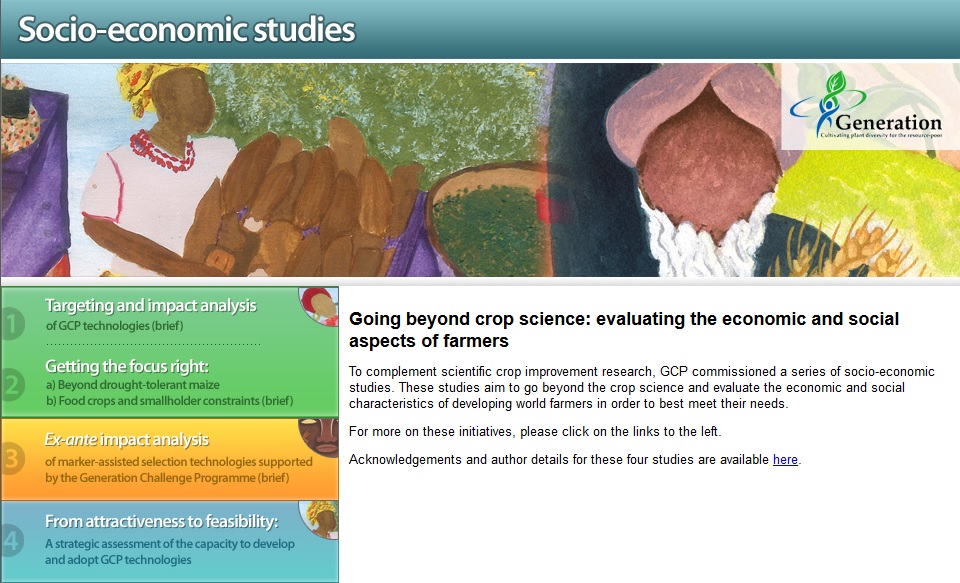GCP socio-economic studies now online

Results from a series of GCP-commissioned socio-economic studies are now available online . The studies were designed to complement ongoing GCP crop improvement research through the evaluation of social and economic characteristics of developing world farmers Materials available in the newly-created Socio-economics website include data, final conclusions, supplementary materials and – where available – a brief, summarising the recommendations of each study, based on study objectives and outcomes.
The following four studies are now available:
1) Targeting and impact analysis of Generation Challenge Programme (GCP) technologies
Through the compilation of multiple datasets, this study determined areas in the developing world experiencing the highest levels of poverty, poorest crop yields, and greatest susceptibility to drought. From the study, 15 regions were identified as high-priority focal areas for future GCP research (see Study 2b below, Getting the focus right: Food crops and smallholder constraints below).
2) Getting the focus right:
a) Beyond drought-tolerant maize: study of additional priorities in maize
A pilot study was commissioned to determine production constraints specific to maize. More
b) Food crops and smallholder constraints
Building on both Study 1 and Study 2a above, this study determined the main production constraints across 14 of the 15 high-priority regions identified by Study 1. A list of potential solutions was also formulated.
3) Ex-ante impact analysis of marker-assisted selection technologies supported by the Generation Challenge Programme
In order to better understand the economics of marker-assisted breeding (MAB), researchers of this study gathered information on crop yields, farmer adoption rates, market prices, cultivated land area, breeding times, input prices, costs of development, and more. These extensive data are a firm foundation for computing the net present value (NPV, ie, future benefits less future costs) of using MAB rather than phenotypic selection.
4) From attractiveness to feasibility: A strategic assessment of the capacity to develop and adopt GCP technologies (in progress)
To complement the aforementioned socio-economic studies which have identified priority farming systems for GCP investments, this study takes a different perspective, examining the extent to which a given region can adapt and adopt such technological advances, to ensure that GCP efforts achieve maximum results. In this way, the study seeks to identify capacity issues and determine whether GCP technologies are both attractive and feasible for end-users. Commissioned in 2008, this study is still in progress.
To learn about other resources and tools from GCP's Subprogramme 5, please visit our Capacity-building corner.
